Harold, DF2WO will be active again as 9X2AW from Rwanda, starting 22 January 2026.
He will operate on 160 - 6m, CW, SSB, Digital modes and QO-100 satellite.
Recent DX Spots 9X2AW
9X2AW Log search QSL via M0OXO, OQRS.
Ads for direct QSL:
Charles Wilmott, 60 Church Hill, Royston, Barnsley, South Yorkshire. S71 4NG, England.
Rwanda is a picturesque country in East Africa
The Republic of Rwanda is a small state in the eastern part of the African continent, bordering Congo, Uganda. Tanzania and Burundi. Rwanda does not stand out much among African countries in terms of economic development. However, despite a predominantly agrarian sector and slow urbanisation, Rwanda has nevertheless experienced significant economic growth in recent years. The colourful, distinctive country attracts the attention of tourists, especially those who are fond of safaris. Today, Rwanda is considered one of the most sought-after and authentic destinations in East Africa, which is largely due to its more favourable position against the background of unstable neighbouring countries.
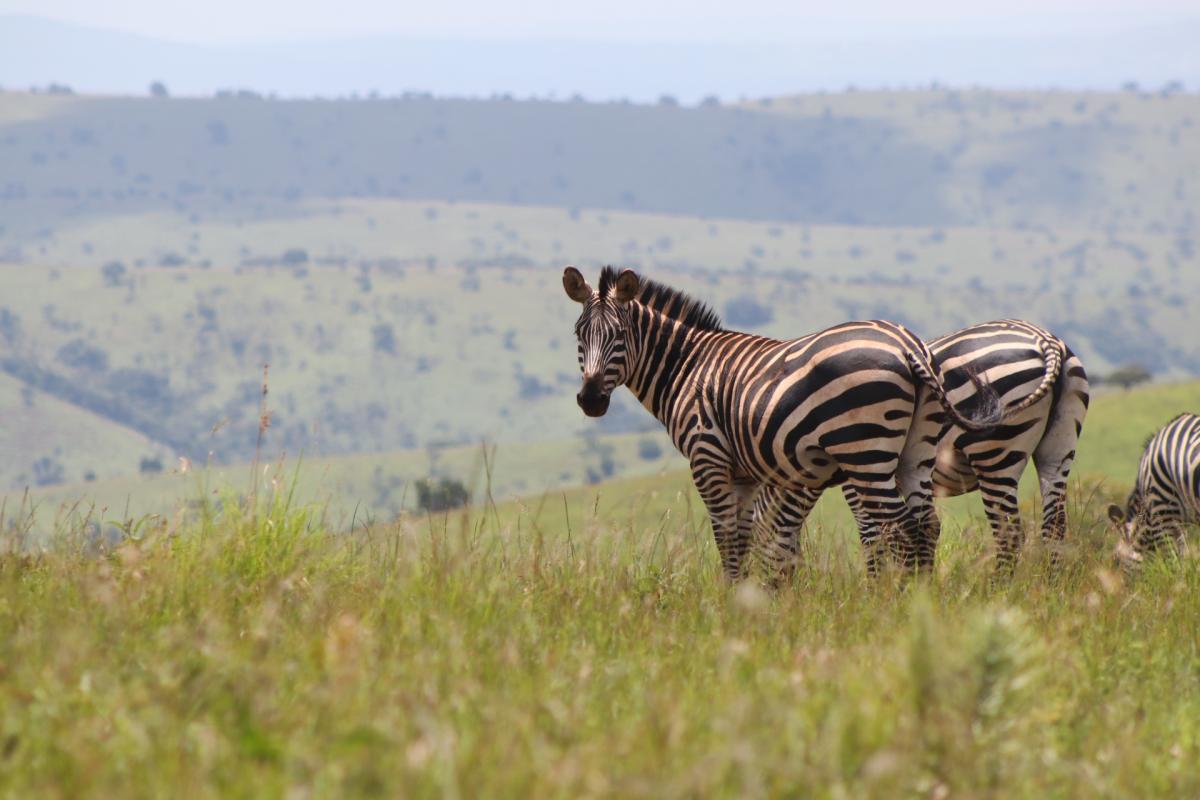 Rwanda. Author - Paul Camilleri.
Rwanda. Author - Paul Camilleri.
Geography of Rwanda
The country is one of the smallest states in the world, with an area of only 26.34 square kilometres. At the same time Rwanda is characterised by a high population density - an average of 500 people per km2. Rwanda has a pronounced relief, because of which it is often called "the country of a thousand hills", the height of some elevations reach 600 metres. The highest point of the country is at the top of the Karisimbi volcano and is over 4.5 thousand metres.
Rwanda is rich in rivers, many of which are navigable. The largest river is the Nyabarongo. Due to the differences in topography, the major rivers have picturesque rapids and waterfalls that beautify the landscape.
In addition to rivers, Rwanda has several large lakes that the country shares with its neighbours. For example, most of the largest lake, Lake Kivu, is located in the Congo.
Rwanda has a tropical climate due to its close proximity to the equator. However, there is never excessive heat here - again, thanks to the high altitude and abundance of water bodies. The average annual temperature is around +20 degrees centigrade. The hottest month is August.
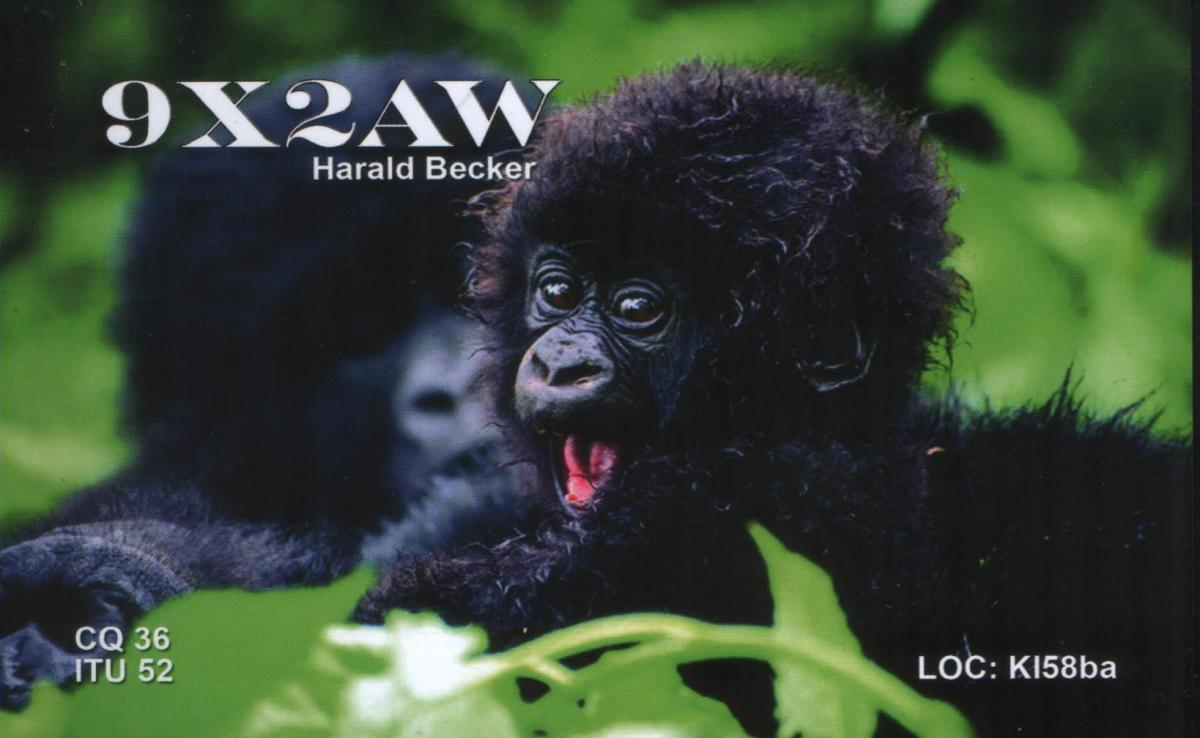 9X2AW. Rwanda. QSL.
9X2AW. Rwanda. QSL.
Flora and fauna of Rwanda
Rwanda 's flora and fauna have been greatly impoverished due to agricultural development. The once dense tropical thickets with great species diversity have been replaced by sparse forests and savannahs. The flora is predominantly acacia, baobab, oil and carob trees.
High population density has significantly affected the fauna of Rwanda. Thus, large representatives of African fauna live only in reserves. In the wildlife areas one can see elephants, crocodiles, hippos, giraffes, antelopes, as well as dangerous predators - hyenas, jackals, lions, cheetahs, which often visit from neighbouring countries.
Rwanda is home to dangerous representatives of reptiles - black mamba, cobras and vipers, and near the rivers live pythons, whose skin is extremely valuable and serves as a material for sewing expensive handicrafts.
When planning a trip to Rwanda, you should remember that the country is home to many insects dangerous to human health, including the malaria mosquito and the tsetse fly, which are carriers of serious diseases.
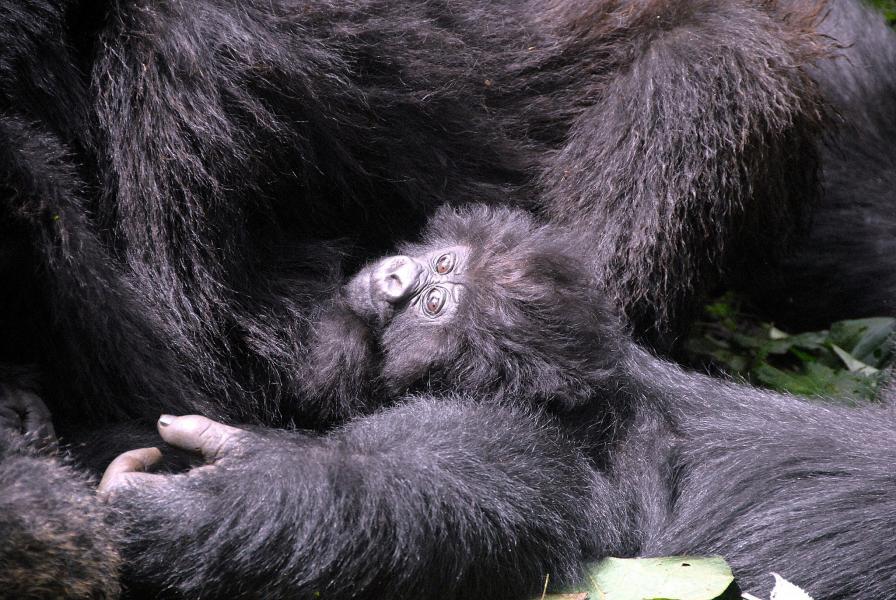 Rwanda. Author - Suresh Krishna.
Rwanda. Author - Suresh Krishna.
History of Rwanda
At the beginning of the colonial period, the territory of present-day Rwanda was inhabited by three ethnic groups: Hutu, Tutsi and Twa. There was a clan system, which declined by the early 15th century. The clans were replaced by kingdoms - there were about eight such state formations, most of them headed by representatives of the Hutu people.
In 1861, Rwanda was discovered by the British. The explorer John Speke noted in his notes that an unusually developed nation had been discovered in the Great African Lakes region. The geographer mentioned not only the economic development of the locals, but also the fact that the local kingdom had its own army, which did not allow external encroachments.
The Germans were the first to attempt to conquer Rwanda in the late 19th century. The local king was offered to voluntarily go under the German protectorate. But the Rwandan ruler rejected the offer, which led to a coup d'état. The new king, Juhi V Musinga decided to voluntarily submit to the German Kaiser. From 1897, Rwanda 's new position was formalised.
With the outbreak of World War I, Germany's holdings in East Africa were almost completely conquered by Belgium, then part of the Entente. Having established power in Rwanda. The Belgians pursued a more rigid policy. Unlike the Germans, they did not reckon with the local chiefs, completely depriving them of their privileges.
During the period of Belgian rule, inter-ethnic strife among the local population intensified. This was due to the introduction of identity cards with mandatory nationality without the possibility of changing this information. Thus, the Hutu, the poorer stratum of society, lost the opportunity to join the elite society by simply calling themselves Tutsi, as was often the case before.
It was not until 1994 that the Tutsi genocide was brought to an end, thanks to a military invasion by the Rwandan Patriotic Front, formed from Tutsis who had once fled the country.
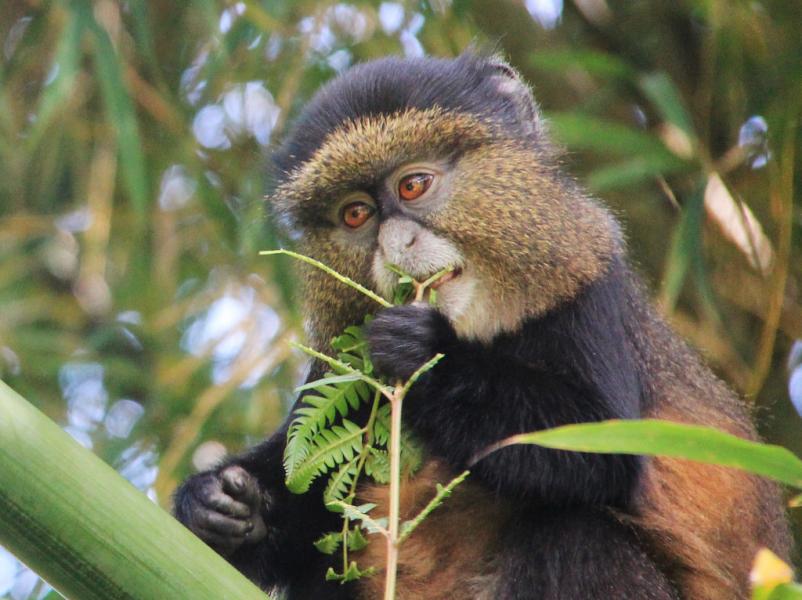 Golden Monkey, Volcanoes National Park, Rwanda. Author - Dario Lorenzetti.
Golden Monkey, Volcanoes National Park, Rwanda. Author - Dario Lorenzetti.
Rwanda Attractions
The country's main attraction is undoubtedly its nature. In small and densely populated Rwanda, there are a number of protected areas carefully guarded by the state.
Volcanoes National Park
This place is also called Birunga Park - it is located in the north-western part of Rwanda shares a border with another protected area located in Congo - until 1960 it was one big park. The reserve gets its name because of the five volcanoes within its boundaries.
In addition to the majestic volcanoes, the park is famous for its large population of mountain gorillas. It was to protect these rare animals from extermination that the park was founded in 1925. In the middle of the last century, the famous American naturalist Diane Fossey was engaged in the study of primates. In 1985, the scientist was murdered right in the house where she lived. It is believed that she was a victim of poachers.
In the 90s, the park's infrastructure was damaged during the civil war, but after the end of hostilities, tourism and scientific activities were resumed.
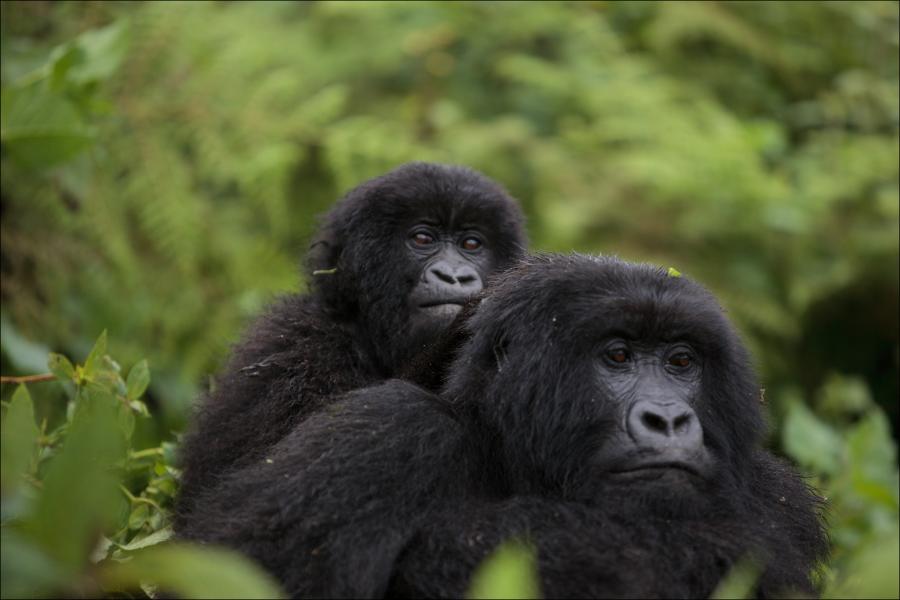 Rwanda. Author - Ludovic Hirlimann.
Rwanda. Author - Ludovic Hirlimann.
Akagera National Park
Another picturesque wilderness area located on the border with Tanzania, it covers an area of as much as 1200 kilometres. It is here that tourists can enjoy such popular entertainment as safaris. You can get here from the capital of Rwanda - the city of Kigali.
The territory of the national park includes three natural zones at once - savannah, mountains and marshland. And closer to the border with Tanzania flows the Kagera River, whose name was given to the park. Along the waterway there is a chain of lakes, the fullest of which is Lake Ihema.
Lake Kivu
Kivu is rightly considered the most remarkable water body in Rwanda. Its area is almost 3 thousand square kilometres and the water level reaches 1.5 thousand metres above sea level. Interestingly, Kivu is united with another, even larger lake in Africa - Tanganyika: they are connected by the Ruzizi River. Despite the beauty and scenic beauty, the reservoir carries a potential danger. Thus, due to seismic activity in this region, there may be a release of methane and carbon dioxide, which in large volumes rest at the bottom of the lake. In the event of a negative development, two million inhabitants from the neighbouring settlements, both in Rwanda. and in the Republic of Congo.

